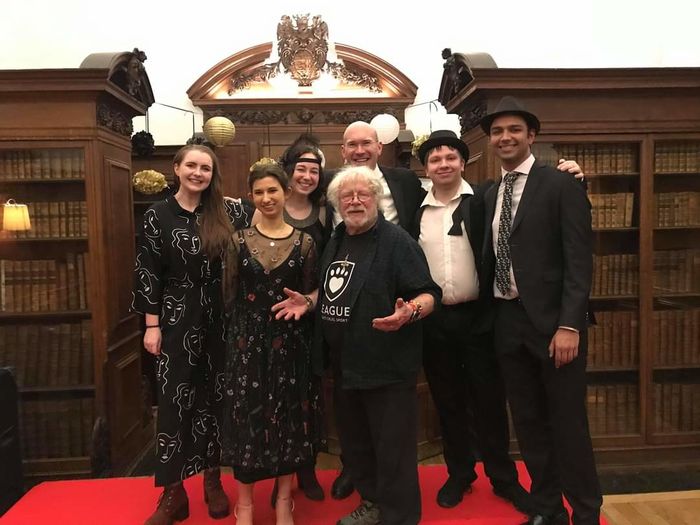How to pitch a show: the written application
In the first part of her pitching guide, Gina Stock walks you through the written work required to get your very own show into a key venue

For any wannabe directors out there, the only way to secure the ADC Theatre or Corpus Playroom for shows is by going through the process we call pitching. Here’s my how-to guide on do’s, and definite don’t’s, for the written application; all official information about pitching can be found on the ADC Theatre’s website!
Who are you pitching to?
Your pitches will be read by a panel of both student and staff representatives. Usually, there will be two representatives from ADC Management (full-time staff that manage the ADC Theatre), two representatives from CUADC (the resident society of the ADC), one representative from Bread Theatre and Film Company (a society dedicated to giving voice to underrepresented groups and alternative narratives), one representative from Fletcher Players (the resident society of the Corpus Playroom), and, if it is a musical, the President of Cambridge University Musical Theatre Society. You can contact all of these societies for advice with pitching — they’re all happy to help!
“The important thing to be aware of when selecting a show to pitch is the practicality of the slot”
Picking your show
The important thing to be aware of when selecting a show to pitch is the practicality of the slot. There are many different slots to choose from: an ADC main show needs to be commercially viable and can be a longer show, while a late show at the ADC or Corpus Playroom must be shorter, and can be more experimental. Unfortunately the ADC Theatre does need to make money to function and survive as an artistic space, so shows with a bigger draw are prioritised for the bigger slots. However, this doesn’t mean that you can’t use the pitching cycle as a chance to prove why your show is, in fact, commercially viable, and to prove your marketing strategy is effective; a few ‘fringe’ shows have made it to the ADC main slot — and sold out — in the past few years thanks to their incredibly committed production teams.
Another thing to be aware of when picking your show is the constraints put in place by ADC conventions. A show must not be re-programmed within 5 years of its last iteration, including at the Arts Theatre and town productions (usually only 3 years for Shakespeare). Each term will have a theme and a shortlist of suggested titles, which nonetheless need to be accompanied by a well-informed pitch, but are an attempt to diversify and organise the structure of the term. For the Lent Term Musical, this shortlist is compulsory to stick to, and if you want to pitch a specific musical you will have to contact ADC Management to get your show put on the shortlist. And finally, if you’re pitching something that isn’t on a shortlist, have a quick google and ensure that the performance rights are available in this area!
“It is particularly important to show that you care about the creative direction of the show”
Writing your application:
Why are you passionate about your show?
This is a chance to briefly bring in your personal connection to the show, why it excites you and why it should the panel. Perhaps it also fits with the intended ‘theme’ of the pitching cycle, perhaps it is a really important piece in the current climate, perhaps it just hasn’t been put on in a while!
What ideas do you have about the process of bringing your show to the stage?
This is a chance to show that you know how to direct, produce or write. Even if you don’t have experience in the following areas, ensure you show you have a general aesthetic and practical vision for set, costume, lighting, staging, rehearsal process, and music and dance. If you are pitching as a producer or writer, it is particularly important to show that you care about the creative direction of the show, even though it won’t be entirely your responsibility.
How do you want the audience to react to the show?
This question is a chance to show you understand your target audience and your intended message. Are you wishing to entertain? To inquire? Do you want to shock? Excite? Why is this intended reaction important or relevant for theatre, and for the show itself?
What ideas do you currently have about ways to allow for diversity and inclusion in your production?
This question prompts you to think about casting and accessibility to the production in its initial stages, but also any sensitive themes of the show. As a director or producer, you are briefly a representative of the theatre community on an audition panel; why should you be trusted to ensure you have fully accounted for diversity and inclusion in this process?
What are your ideas for marketing this production?
This question is particularly important for directors, despite the fact that enlisting a producer may free you slightly from the responsibilities of marketing. Show that you understand the traditional methods of marketing a student show: social media, ADC website features, newspapers and posters, and show which methods are particularly suited to your show, and what original but practical ideas you can bring to the table.
 Features / Should I stay or should I go? Cambridge students and alumni reflect on how their memories stay with them15 December 2025
Features / Should I stay or should I go? Cambridge students and alumni reflect on how their memories stay with them15 December 2025 News / Cambridge study finds students learn better with notes than AI13 December 2025
News / Cambridge study finds students learn better with notes than AI13 December 2025 News / Uni Scout and Guide Club affirms trans inclusion 12 December 2025
News / Uni Scout and Guide Club affirms trans inclusion 12 December 2025 Comment / The magic of an eight-week term15 December 2025
Comment / The magic of an eight-week term15 December 2025 News / News In Brief: Michaelmas marriages, monogamous mammals, and messaging manipulation15 December 2025
News / News In Brief: Michaelmas marriages, monogamous mammals, and messaging manipulation15 December 2025








